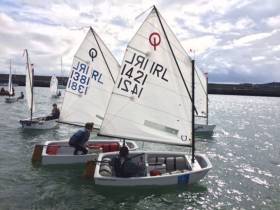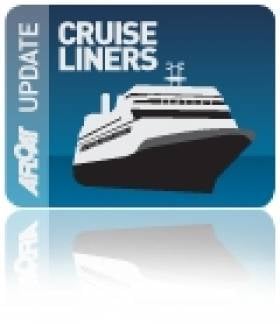Displaying items by tag: Leinster
Optimist Leinsters a Great Success for National Yacht Club Despite the Weather
It was a clean sweep for Royal Cork Yacht Club junior sailors at the Optimist Leinster Dinghy Championships at the National Yacht Club last weekend.
Justin Lucas won the Merrion Private sponsored event where 139–sailors registered including 29 from the host club.
Lucas's clubmates Harry Twomey and Harry Pritchard finished second and third respectively.
There were very challenging windy conditions, as Afloat.ie reported here, over the entire weekend and despite this five races took place over both days.
Race Officer for the main fleet was Con Murphy and Paddy Judge officiated for the regatta fleet.
Results are here
Larsen Sets Good Time at Leinster Indoor Test
#Rowing: Breanna Larsen of Garda Boat Club set a fine personal best time of seven minutes 7.9 seconds at the Leinster Indoor Rowing competition at Garda Rowing Club on Saturday. Oblivious to the wind and rain outside, the women rowers from Garda, UCD and Trinity competed and set some good times. Trinity won the award for best female club, but Aileen Crowley of UCD took the under-23 title, clocking an impressive 7:13.30.
Leinster Indoor Competition, Garda Boat Club, Saturday (Selected Results, 2,000m unless stated) Full Results Attached
Men
Open: 1 D Kelly 6:17.8, 2 C McShane 6:54.8, 3 P Murphy 7:12.4. Novice (1,000): C Harrington 3:11.7. Jun 18: 1 N Beggan 6:51.8, 2 J Phelan 6:53.3, 3 A Lennon 6:56.0. Jun 16: R Quinn 6:54.9.
Masters 30+: D Quinn 6:31.40. Non-Rower (1,000m); 2:59.8.
Women
Open: 1 B Larsen 7:07.90 (PB), M Moore 7:20.10, 3 S O’Brien 7:23.6. Under-23: A Crowley 7:13.30. Junior 18: E Lambe 7:18.90, 2 C Feerick 7:29.6, 3 J Coleman 7:48.7. Jun 16: S Maxwell 7:49.6. Lightweight: G Crowe 7:33.90.
Novice (1,000m): B O’Brien 3:29.8.
Gale, Flood Warning In Effect for Ireland Today
#WEATHER - Met Éireann is warning that more gale force winds will affect many parts of Ireland and the Irish Sea today (28 December).
According to the forecaster, stormy conditions over Connacht, Ulster and parts of north Leinster will see gale force westerly winds with gusts of between 100 and 130 km/h.
The worst winds are expected in exposed coastal and hilly areas of Ulster and Connacht. There is also an increased risk of flooding as a result of high astronomical tides combined with very high seas.
Former Soviet-Bloc Liner Continues Cruising
Cruising off the east coast of Leinster this evening is the veteran cruiseship Marco Polo which is bound for the Scilly Isles off Land's End, writes Jehan Ashmore.
For those with an appreciation for the more traditional tiered deck profile compared to the bulky new giant cruiseships, the 22,080 tonnes vessel built as the Aleksandr Puskin at the Mathias-Thesen-Werft, East Germany, certainly represents a different era.
The liner entered service in 1966 with the Baltic Shipping Company on their regular trans-Atlantic Montreal-Leningrad service. In 1975 she was converted for her new role as a full-time cruiseship. For a cut-away deck profile and description of facilities click here.
She can take 850 passengers accommodated in 450 cabins. Her main dimensions reflect her ocean-going design noting her draft is 8.2m (26.9ft) with a length of 176.3m (578.4ft) and a beam of 23.6m (77.4ft). Crewing is divided between senior officers (international) and cruise staff and entertainers are both British and comprising of other nationalities.
In recent years Marco Polo served the German market but she now is run by Cruise & Maritime Voyages (CMV) on cruises from the UK. The company also operate the Ocean Countess which first started out her days as Cunard Countess.


























































